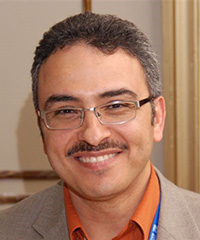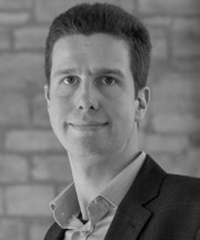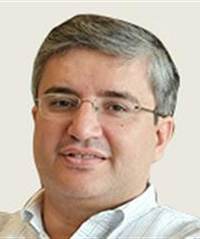
Hossam Hassanein (Queen’s University, Canada)
Title: Towards Provisioning Vehicle-Based Information Services
Abstract: Intelligent vehicles are considered key enablers for intelligent transportation systems. They are equipped with resources/components to enable services for vehicle occupants, other vehicles on the road, and third party recipients. In-vehicle sensors, communication modules, and on-board units with computing and storage capabilities allow the intelligent vehicle to work as a mobile service provider of sensing, data storage, computing, cloud, data relaying, infotainment, and localization services. In this talk I introduce the concept of Vehicle as a Resource (VaaR) and shed light on the services a vehicle can potentially provide on the road or parked. We anticipate that an intelligent vehicle can be a significant service provider in a variety of situations, including emergency scenarios. I also discuss how to integrate sensor technologies available in both legacy vehicles and drivers’ smartphones to provide advanced, robust localization and accurate road information services.Biography: Hossam Hassanein is a leading authority in the areas of broadband, wireless and mobile networks architecture, protocols, control and performance evaluation. His record spans more than 500 publications in journals, conferences and book chapters, in addition to numerous keynotes and plenary talks in flagship venues. Dr. Hassanein has received several recognitions and best papers awards at top international conferences. He is also the founder and director of the Telecommunications Research Lab (TRL) at Queen's University School of Computing, with extensive international academic and industrial collaborations. He is a former chair of the IEEE Communication Society Technical Committee on Ad hoc and Sensor Networks (TC AHSN). Dr. Hassanein is an IEEE Communications Society Distinguished Speaker and is a fellow of the IEEE.

Nils Aschenbruck (University of Osnabrück, Institute of Computer Science, Germany)
Title: Robust Networks for Cyber Agricultural Systems
Abstract: Increasing the efficiency of farming has been one of, if not the, most important factor in human development since the neolithic age. It laid the path for mankind’s accomplishments in the present age. Even today, new improvements are required. One of the current, most promising improvements is precision farming which demands a spatial distribution of crop parameters in order to cultivate plants in every location in precisely the correct way, e.g. by supplying the perfect amount of fertilizer. At the horizon we even start seeing the next step: smart farming towards so-called Cyber Agricultural Systems. One of the core challenges for the next step is robust and reliable networks. In this talk, I will present approaches and results from field deployments as well as point out challenges for future research towards robust networks for Cyber Agricultural Systems.Biography: Prof. Dr. Nils Aschenbruck is a Full Professor for Computer Science at the University of Osnabrueck, Germany. His research interests include mobile and wireless networks, security, and scenario modeling. Prof. Dr. Aschenbruck has received over 20 external grants from both government funding agencies and industry. In total, his projects have received over 3 million euros in external funding. He has published over 60 refereed papers in international journals and conference proceedings.
Prof. Dr. Aschenbruck served as reviewer for the Humboldt Foundation as well as the German Federal Ministry of Education and Research. Since 2013 he is the chair of the IEEE Computer Society Technical Committee on Computer Communications (TCCC) and since 2016 the chair of the IEEE Computer Society Technical Activities Committee (TAC). He is a Steering Committee of the IEEE Transactions on Mobile Computing as well as IEEE Conference on Local Computer Networks (LCN). Prof. Dr. Aschenbruck received his graduate diploma and PhD in computer science from the University of Bonn, Germany, in 2003 and 2008, respectively. He continued as a senior researcher and head of the research area "tactical wireless multi-hop networks" at the communication systems group at the University of Bonn. In spring 2010, he worked at the Colorado School of Mines for a term, co-funded by the DAAD short term lectureship program. Since 2012 he holds a tenured professorship for distributed systems at the University of Osnabruck, Germany.

Mohamed-Slim Alouini (King Abdullah University of Science and Technology (KAUST), Saudi Arabia)
Title: Collimated light propagation: The next frontier in underwater wireless communication
Abstract: Traditional underwater communication systems rely on acoustic modems due their reliability and long range. However their limited data rates, lead to the exploration of alternative techniques. In this talk, we briefly go over the potential offered by underwater wireless optical communication systems. We then summarizes some of the underwater channel challenges going from severe absorption and scattering that need to be surpassed before such kind of systems can be deployed in practice. We finally present some of the on-going research directions in the area of underwater wireless optical communication systems in order to (i) better characterize and model the underwater optical channel and (ii) design, develop, and test experimentally new suitable modulation and coding techniques suitable for this environment.Biography: Mohamed-Slim Alouini was born in Tunis, Tunisia. He received the Ph.D. degree in Electrical Engineering from the California Institute of Technology (Caltech), Pasadena, CA, USA, in 1998. He served as a faculty member in the University of Minnesota, Minneapolis, MN, USA, then in the Texas A&M University at Qatar, Education City, Doha, Qatar before joining King Abdullah University of Science and Technology (KAUST), Thuwal, Makkah Province, Saudi Arabia as a Professor of Electrical Engineering in 2009. Professor Alouini has won several awards in his career: For instance, he recently received the 2016 Recognition Award of the IEEE Communication Society Wireless Technical Committee, the 2016 Abdul Hameed Shoman Award for Arab Researchers in Engineering Sciences, and the Inaugural Organization of Islamic Cooperation (OIC) Science & Technology Achievement Award in Engineering Sciences in 2017. Other recognitions include his selection as (i) Fellow of the Institute of Electrical and Electronics Engineers (IEEE), (ii) IEEE Distinguished Lecturer for the IEEE Communication Society, (iii) member for several times in the annual Thomson ISI Web of Knowledge list of Highly Cited Researchers as well as the Shanghai Ranking/Elsevier list of Most Cited Researchers, and (iv) a co-recipient of best paper awards in eleven IEEE conferences (including ICC, GLOBECOM, VTC, PIMRC, ISWCS, and DySPAN)..